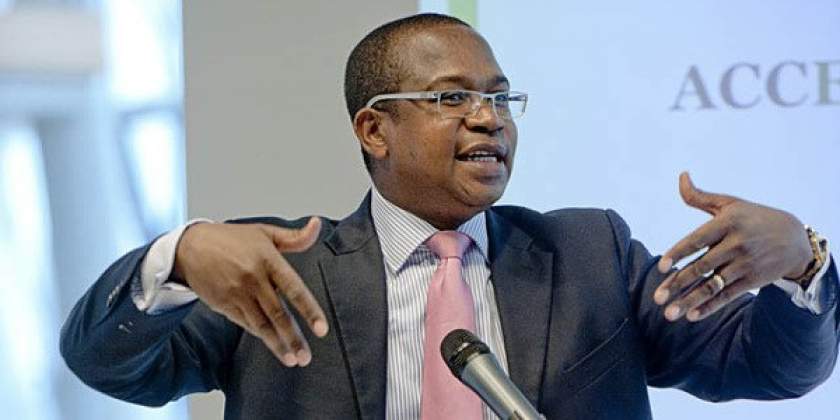
FINANCE minister Mthuli Ncube says government will “do something” about civil service reform and accelerate measures to correct fiscal imbalances currently driving inflation and currency instability.
BY TATIRA ZWINOIRA
The International Monetary Fund (IMF), which resumed technical assistance to Zimbabwe in 2009 at the behest of government, has recommended that the civil service be downsized and State-owned enterprises (SoEs) restructured to improve efficiency and cut public spending, notably employment costs and fiscal loans and grants.
Public sector reforms are widely seen as a politically sensitive issue with adverse implications on electoral performance and have dragged on for nearly a decade.
Progress has been equally slow on the proposed restructuring of SoEs, parastatals, local authorities and other public institutions.
Ncube yesterday said he would this Friday announce an economic stabilisation roadmap, which will touch on government expenditure, including employment costs.
“We have got a lot of plans and it (civil service wage bill) is just one of the areas. It is not the only area of expenditure that could be curtailed or controlled. It is one of them that we will seek to address, but there are many others,” Ncube said in an interview after a monetary policy presentation by the Reserve Bank of Zimbabwe (RBZ).
Ncube has so far intervened to cut government’s deficit financing resource to the RBZ overdraft facility as part of fiscal stabilisation measures.
- Chamisa under fire over US$120K donation
- Mavhunga puts DeMbare into Chibuku quarterfinals
- Pension funds bet on Cabora Bassa oilfields
- Councils defy govt fire tender directive
Keep Reading
The Parliamentary Budget Office (PBO), in a report titled “Ballooning budget deficits, a threat to macroeconomic stability” released last week, noted that employment costs accounted for about 90% of government revenue and could rise to 120% by year-end on account of a 17,5% hike in wages effected July and unrestrained recruitment.
The report also noted that predicted rising employment costs would lead government to a substantial budget overrun. About $3,3 billion had been set aside for employment costs in the 2018 National Budget, about 12,62% higher than the $2,93 billion allocated in 2017.
The PBO noted that employment numbers in the civil service had grown since 2012, in spite of a recruitment freeze announced in 2011.
“There is glaring lack of adherence to the employment freeze policy discourse as evidenced by growth in employment figures from 235 000 announced in the 2012 budget statement whose remuneration was at least $248 million a month (paragraph 255 of the 2012 budget statement) to 298 000 indicated in the 2016 mid-term fiscal policy review statement. No explanation is given on how the number increased by 62 000 despite the freeze on recruitment,” the PBO said in the report.
“The increasing share of employment-related costs to total expenditures is a cause for concern as this crowds out other non-wage capital and social spending. In 2018, employment costs budgeted at $3,27 billion are expected to surpass the 2017 outturn in both absolute and relative terms after government bowed down to pressure from health practitioners … who went on strike demanding an increase in on-call allowances and an improvement in their working conditions. Government has also offered civil servants at least 17,5% salary increment as part of its efforts to improve their conditions of service with effect from the 1st of July 2018.”
This incessant growth in government expenditure, employment costs in particular, tends to crowd out credit to critical sectors of the economy and further drive the budget deficit, expected to reach a staggering $3 billion by year-end, according to PBO projections.
“The build-up of wage-related expenditures over the years has limited policy options for the government, by undermining the role of the budget as a fiscal policy instrument for ensuring better public services. High wage bill expenditures have led to a dependency on external funding for programme-related costs, including capital development,” the PBO report noted.
“Zimbabwe also faces growing costs of public sector pensions, which now constitute the most expensive programme area in the social protection sector. It can also be noted that budget execution rates for capital spending are relatively low and volatile, but high for wage bill, which degrades Zimbabwe’s capacity to generate the base for future economic growth.”
Government’s capital budget has fallen by half from 20% between 2009 when the economy dollarised and 2017.
Some of the recommended fiscal stabilisation measures include a freeze on recruitment, retirements, elimination of duplication of posts; reduction in fuel benefits; reduction in the issuance of vehicles; reduction in the number of people on foreign trips; reduction in the number of foreign missions and cutbacks in support to the public the sector. Ncube plans to bring down the budget deficit to single digits.











